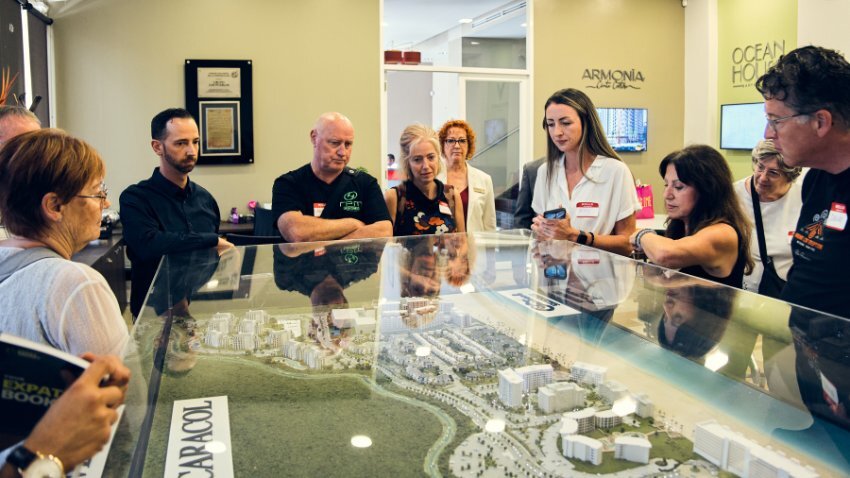Using Your 401(k) To Invest In International Real Estate
With skyrocketing inflation and rising living costs, many people can no longer afford to retire at 60. Living out one’s golden years worry-free seems...

7 min read
El Salvador's young and charismatic President, Nayib Bukele, elected in 2019, has attracted widespread international attention for his controversial political stance and unconventional policies. Former Mayor of San Salvador, the capital city of El Salvador, Bukele, has come to power by challenging traditional politics and skillfully using social media.
With an unusual level of popular support compared to Western democracies, Bukele has pursued controversial policies, particularly in his fight against organized crime, suspending traditional principles of due process and loosening checks on the executive. In addition, his declaration of Bitcoin as the legal tender has occupied the international agenda for a long time and captured the interest of libertarians and crypto enthusiasts.
Pre-Bukele El Salvador had confrontational Cold War-era politics, a population terrorized by civil war and gangs, and an inefficient informal economy. It is not, therefore, right to condemn Bukele by simply comparing El Salvador to Western democracies.
Nevertheless, there is still much more to see before we raise our hopes for El Salvador and put this beautiful country on our Plan-B list. However, the undisputed fact about Bukele is that in El Salvador, where gangs have challenged state power, Bukele has embarked on a process of state-building by re-monopolizing state power. Moreover, Bukele promises to build this modern state on economic freedoms.
It is too early to consider El Salvador as an option for expats, but it is definitely worth watching Bukele closely. Bukele has embarked on a project to create the Singapore of South America from a failed state. To understand the chances of this ambitious project's success, I will take a closer look at El Salvador for you.

Since coming to power in 2019, one in every 45 men is in prison, and 2% of the population is incarcerated. Unable to handle the volume, El Salvadors legislative assembly passed a law allowing mass trials of up to 900 detainees
El Salvador is a country that experienced major civil unrest during the Cold War. Conflicts between the government and leftist guerrilla groups escalated into civil war in the 1980s. Interventions by the United States, Cuba and the Soviet Union further complicated this period.
The civil war resulted in around 75,000 deaths, social breakdown and the destruction of the economy. In 1992, with the mediation of the United Nations, the Chapultepec Peace Accords were signed between the government and the Farabundo Martí National Liberation Front (FMLN). This agreement included important provisions such as political reforms and disarmament and ultimately led to the establishment of peace in El Salvador. However, the end of the civil war did not make it possible for society to live in peace and tranquillity.
Related content: How You Can Apply For Residency In El Salvador
Pre-Bukele El Salvador was clearly a failed state. Two major gangs, Mara Salvatrucha (MS-13) and Barrio 18, were running violence, homicides, drug trafficking and human trafficking. These gangs were particularly influential in poor territories of the country and terrorized the local population. El Salvador, a country of about 6 million people, had one of the highest homicide rates in the world, and fear for safety in everyday life is a major problem, even more so than poverty. The government's operations to deal with the gangs were tokenistic.
Therefore, it would be wrong to call Bukele's policies against organized crime simply reform. A new state is being built in El Salvador, and if successful, Nayib Bukele will undoubtedly be its founding father.
Once the political situation in El Salvador is laid out in this way, Bukele's draconian security policies become understandable. Bukele has been doing the first thing necessary for state-building: fighting those who compete with the state through organized force.
Therefore, Bukele's fight against organized crime is actually an attempt to establish a kind of Hobbesian Leviathan in El Salvador. In practice, this means that limitations on the sovereign's authority are largely removed, and the principle of separation of powers is ignored as much as possible.
This is outside the conventional model of constitutional democracy. An important hallmark of constitutional democracies is "habeas corpus." According to this legal principle, no one can be arrested without a court order, the presumption of innocence is fundamental, and everyone has the right to a fair and public trial.
What Bukele did in El Salvador is the opposite. Bukele has declared a state of emergency 27 times in a row. Gang members, or terrorists as Bukele calls them, can be arrested without a court warrant, detained for 72 hours without explanation of what they are accused of, and held for months before being brought to trial.
Since Bukele came to power in 2019, an estimated 75,000 people have been arrested on charges of gang membership. One in every 45 men is in prison, and 2% of the population is behind bars. The country's legal system is incapable of conducting a normal judicial process for such a large number of detainees. For this reason, El Salvador's Legislative Assembly has passed a law that allows for mass trials of up to 900 detainees.
Such practices, which would have been considered outrageous in a modern democracy, have dramatically increased Bukele's popular support in El Salvador. In the last presidential election in February 2024, Bukele was re-elected president with 87% of the vote. Although there were some significant violations in the counting of the votes, no international organization denies that Bukele enjoys extraordinary popular support.
Moreover, according to the Constitution of El Salvador, the president cannot be re-elected. Nevertheless, El Salvador's Supreme Electoral Tribunal, under Bukele's influence, confirmed that Bukele's re-election was constitutional. The broad masses of the population were strong supporters of this decision. I don't think there are any practical obstacles to Bukele being elected for a third term.
In this context, Bukele's war against criminal gangs and the arrests make sense. By declaring the gangs terrorists, Bukele has, in effect, excluded them from the new social contract; that is, he has declared that he does not recognize any rights for them.

Unlike the constitutional revolutions in Europe, Bukele is not fighting an absolutist dictator but creating an environment to establish himself as an "enlightened" or "coolest" dictator, as he defined himself on social media
Constitutional revolutions in Europe usually fought against absolute monarchies, not attempts to restore centralized power. These constitutional revolutions in Western Europe secured individual freedom and private property through the legal system and the separation of powers. The experience of free markets, the Industrial Revolution, and limited government made it possible to build the Western world as we know it today.
Bukele's El Salvador does not follow the example of Western Europe. As I have already emphasized, El Salvador is only in the process of building the Leviathan. Otherwise, Bukele did not fight against an arbitrary dictator. Rather, he seeks to establish himself as an enlightened dictator. Bukele wants to be the coolest dictator in the world, as he defined himself for a while on the X platform.
However, it is not possible to call Bukele a dictator in theory. Bukele came to power through elections, and his second presidential term was supported by an overwhelming majority of the people.
Considering the semi-anarchic state of El Salvador before Bukele, Bukele's success and promise for the future are even more striking. This is because broad-based democratic support for Bukele resembles a social contract. Bukele is a legitimate president who has won the people's consent. The people seem to have ceded their natural rights to Bukele, and the gang members are excommunicated from the contract.
State-building is a tremendously difficult task. If it is not grassroots, it is impossible to succeed. If you don't believe it, look at what the US did in Afghanistan and Iraq. Despite years of war, tens of thousands of deaths and billions of dollars spent, American troops fled the country overnight, leaving Afghanistan to the Taliban. Iraq is still far from being a nation-state, and it would not be surprising if widespread social violence erupted.
This is why Bukele's first attempt at state formation seems to have been quite successful. The most important reason for his popular support is that he greatly ensured the security of life and property of his people. His intolerant stance against gangs may enable Bukele to re-establish centralized power in El Salvador and lay a solid foundation for further reforms.
Compared to 2015, homicide rates are down 97,7%, and even dissidents acknowledge that they live in a safer country. The proportion of indigenous people trying to migrate from El Salvador has also fallen dramatically. Public confidence in the police, the army and parliament in general has risen sharply.
However, as Lord Acton aptly put it, "power corrupts; absolute power corrupts absolutely." Having overcome the issues of security and the use of violence, it is clear that Bukele needs to increase investment and employment opportunities in the country by securing individual freedom, private property and free trade. Otherwise, Bukele may not remain the "world's coolest" dictator.

For El Salvador to become an attractive country for foreign investment in the long term, Bukele needs to establish a business environment with strong legal security. This will enable robust economic growth
El Salvador has a long list of tasks for establishing a modern market economy. However, there is no sign yet that Bukele has a solid economic reform program. By economic program, I do not necessarily mean targeting strategic investment areas and international financial fund agreements. To become an attractive country for long-term direct foreign investment, El Salvador must establish a modern economic and legal order that enables fast economic growth.
Fighting gangs with an iron fist can be an effective measure. However, Bukele must have a very clear and publicly announced plan for when such measures will end. A productive economy and large-scale foreign investment require a delicate scale of justice, not an "iron fist."
To implement his iron fist policies, Bukele has made significant changes in both the political and judicial cadres. But before he gets too comfortable with these changes and the support of the masses, he must move the country in the most pro-liberty direction possible, at least economically.
El Salvador has been a dollarized economy since 2001. This policy facilitates the inflow of foreign currency, avoids a balance of payments crisis, and limits politicians' monetary expansion. I also appreciate Bukele's decision to adopt Bitcoin as legal tender.
However, Bukele's plan to generate significant financial resources for the country through Bitcoin investments reveals itself as a poorly conceived program from the start. In particular, the promise of citizenship through a $1 million Bitcoin investment is a stillborn initiative. While many other countries have citizenship-by-investment programs with better terms and conditions, Bukele's program, which was implemented without much work in the hope of attracting crypto millionaires to the country, has fallen far short of expectations.
Still, Bukele remains hopeful that Bitcoin will attract investment quickly. Bukule’s recent economic policy proposes establishing private investment banks that will use Bitcoin as a fundamental component of their operations. I see the effort to integrate Bitcoin, which is based on the free transfer of money outside the traditional financial system, into the legal framework as an initiative that goes against Bitcoin's purpose and financial freedom.
Related content: El Salvador: The Diamond In The Rough Of Central America

Fortunately, there are many attractive alternatives to El Salvador's CBI. Several countries near El Salvador offer excellent Plan-B options with political stability and more attractive tax regimes
Bukele's achievements cannot be overstated, and his challenge is much more than making Bitcoin the legal tender. Having said that, however, we must wait at least one more presidential term to see where Bukele takes El Salvador. El Salvador is still struggling with the deep scars of the Cold War and the civil war, but it needs to rebuild itself quickly by consolidating pro-freedom political and economic institutions.
Fortunately, there are many appealing alternatives to El Salvador's citizenship by investment program. Numerous countries offer excellent Plan-B options, boasting economic and political stability, attractive tax regimes, and openness to the international community, ensuring secure your freedom and wealth. I can help you to identify the best country for your needs and seamlessly prepare your Plan-B.
The world you used to have is deteriorating, with governments imposing heavy taxes and restricting the freedoms of productive individuals to pay for their mistakes. Fortunately, you have alternatives. For many years, I have helped hundreds of clients secure their freedom, future, and wealth, achieving the future they desire. The right time to act on your Plan-B is today. Tomorrow may be too late to escape politicians' empty promises.
.jpg?width=850&height=477&name=Replay%20(6).jpg)
If you want the best intel from the expat world, including profitable offshore opportunities, little-known tax-saving strategies, and hard-won insights on immigration, passports, and Plan-B residencies, all delivered to your inbox every single week, then join our daily correspondence, EMS Pulse®. Currently enjoyed by over 84,000 expats and expat-hopefuls worldwide. Fill in the form below to join our newsletter free:

Written by Mikkel Thorup
Mikkel Thorup is the world’s most sought-after expat consultant. He focuses on helping high-net-worth private clients to legally mitigate tax liabilities, obtain a second residency and citizenship, and assemble a portfolio of foreign investments including international real estate, timber plantations, agricultural land and other hard-money tangible assets. Mikkel is the Founder and CEO at Expat Money®, a private consulting firm started in 2017. He hosts the popular weekly podcast, the Expat Money Show, and wrote the definitive #1-Best Selling book Expat Secrets - How To Pay Zero Taxes, Live Overseas And Make Giant Piles Of Money, and his second book: Expats Guide On Moving To Mexico.

With skyrocketing inflation and rising living costs, many people can no longer afford to retire at 60. Living out one’s golden years worry-free seems...

With governments worldwide tightening their grip, dual citizenship is no longer a luxury; it has become a strategic necessity for many. The benefits...

Canada is often portrayed as a land of freedom, opportunity, and prosperity. Reality, however, tells a different story. Statist policies, crushing...